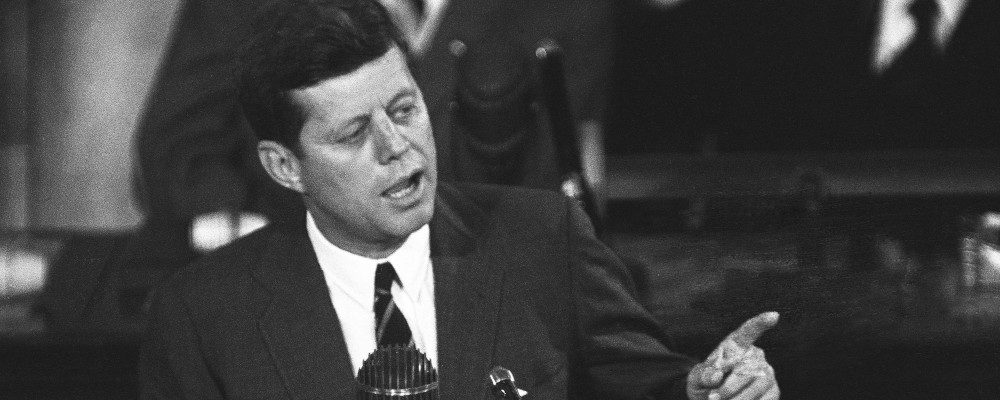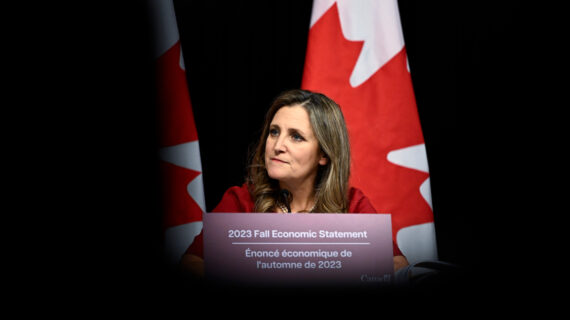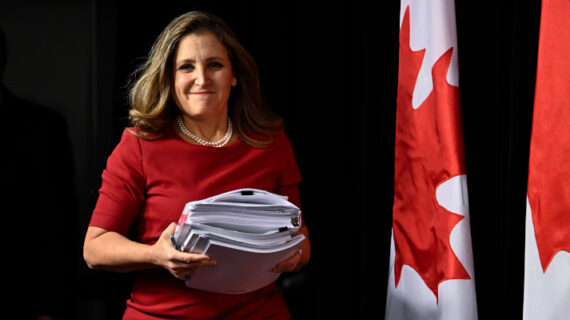After Finance Minister Chrystia Freeland tabled the government’s first budget in two years on Monday, two things were clear: public trust is low and deficits are sky-high.
There might be a relationship between the two things.
A recent survey conducted last fall by Public Square and Maru/Blue found that 32 percent of Canadians had little or no respect for the government and only 15 percent of Canadians had a great deal of respect for the government. Media was at the bottom of the list with only 12 percent.
These numbers confirm what other survey organizations have found, that trust in government institutions is collapsing. These figures are comparable to those found in the US and the UK.
Then again, government institutions aren’t the only ones taking a hit in public opinion polls: 46 percent of Canadians also had little or no respect for once highly regarded church and religious institutions. (But that’s a question for another day.)
It wasn’t always thus. Fifty years ago, most Canadians held the public service in high esteem. From 1965 to 1984, trust in the government fluctuated around 60 percent. By 1993 it was 34 percent. In the US, the fall was even more dramatic. In 1958, 73 percent of Americans said they trusted the government to do the right thing “just about always” or “most of the time”; by 2011 that fell to 10 percent.
What changed? Schools of public administration have been racking their brains trying to figure out why. Donald J. Savoie, at the University of Moncton, in his excellent book What is Government Good At?, makes a strong case that “the machinery of government was not designed to cope with today’s complex policy environment….” And on that, he’s right. He also infers that senior government officials aren’t as good as they once were in implementing policies and programs. Today’s federal bureaucrats seem better at proposing ideas than implementing them.
Another explanation for falling trust centres around the popular notion that income inequality and a growing sense of being left behind is the root cause of dissatisfaction with governments in general. Some argue that to resolve this gap, the only way to get back the confidence of Canadians is to adopt policies that support social, political and economic egalitarianism. Easier said than done, if it can be done at all.
A more convincing and perhaps more complex reason for falling trust can be found in Canada’s move in the mid-1960s to a revolution or explosion in social programs that have shaped modern Canada. Following in the spirit of America’s Great Society under President Lyndon Johnson and John F. Kennedy’s New Frontier, Kennedy inspired a generation when he said we choose to go to the moon not because it’s easy, but because it’s hard. In other words, bring it on, the state can meet all challenges.
The marginal benefits of an extra dollar on social programs are hard if not impossible to measure
With that, the US launched programs in education, healthcare, civil rights, urbanism, transportation and the war on poverty. In the mid 1960s, Canada followed under Lester Pearson with Canada’s Pension Plan, the Medical Care Act, welfare reform under the Canada Assistance Plan (CAP), the Guaranteed Income Supplement and Canada Student Loans.
Canada was now in the throes of social policies to provide an extensive social safety net throughout the country. Traditional government programs were confined to what can be classified as “closed-ended” programs, such as linking the country through major infrastructure projects starting with John A. Macdonald’s National Policy. Governments are good at providing closed-ended projects such as food inspection, roads, hydro projects, transport control, sanitation, canal construction and trade and commerce. In other words, tasks that have objectives with deadlines and clear metrics for success or failure.
Hard to measure social policy success
All that changed when Canadian government priorities turned to solve Canada’s social problems. Policies now concentrate on “open-ended” programs, including more affordable housing, aggressive welfare reform, homelessness, criminal reform, aboriginal and native issues, racial discrimination, early childhood care, and environmental programs. Today, all infrastructure projects — even pipelines — are open-ended given the endless studies on how they affect the environment.
What characterizes these extensive social programs is that improvements are hard to measure and quantify. With more taxpayer resources on these programs, the public has a hard time trusting government institutions when they see a growing population of homeless — many with mental disabilities — sleeping in parks. On education, we are spending more, but we seem to be getting less in return according to a study on education reform done by the Johnson Shoyama Graduate School of Public Policy.
This doesn’t mean that there aren’t improvements, but in most cases, they are slow and hidden from view. The marginal benefits of an extra dollar on social programs are hard if not impossible to measure. They are coupled with the fact that governments spend very little measuring whether social programs do any good at all. No one can deny that poverty in 2021 isn’t comparable to poverty in 1960, but we measure success from our current perspective. We’ve discovered that putting a man on the moon was easy and solving poverty is hard.
Low public trust isn’t necessarily a sign of failure, just a reminder that social problems are intractable. We’ll have to live with that. The role of government has drastically changed over the decades, along with the standards by which we measure success.
As long as governments concentrate on open-ended social policies, trust will remain low.




